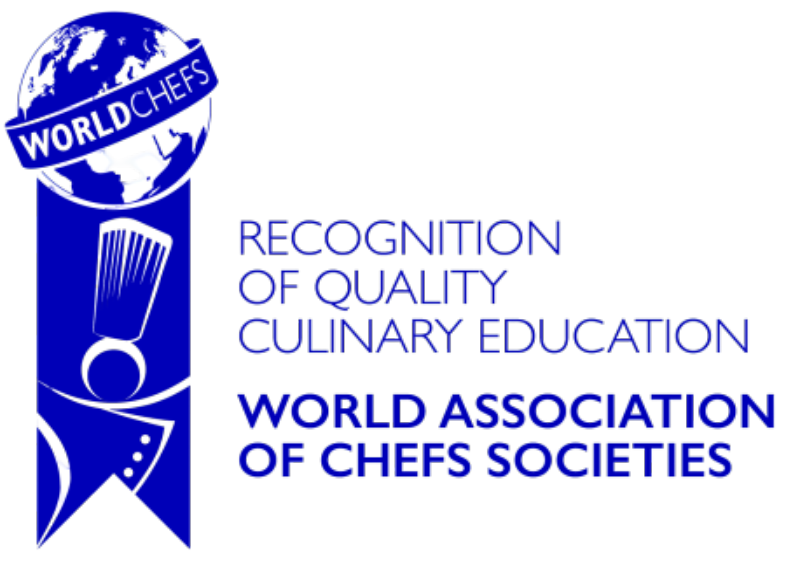Commitment to Anti-Discrimintation
All DIG personnel and students are committed to upholding a safe and comfortable learning environment. The institution confirms this commitment to anti-discrimination by requiring all faculty, staff, chef-mentors, and students to complete an anti-discrimination training course within the first month of activity with the institution.
Detroit Institute of Gastronomy is opposed to any and all forms of Sexual Harassment, Sexual Assault, Non-Sexual Offences and Discrimination within the DIG community and will take the steps necessary to stop such conduct. All DIG students and personnel are expressly prohibited from engaging in any form of harassing, discriminating, intimidating, or retaliatory behavior or conduct in all interactions with each other, whether the interaction occurs during a class, on the institute’s premises, the student’s apprenticeship site, an institute sponsored/managed event, practicum, field trips, or competition.
Any individual who has engaged in prohibited behavior or conduct will be subject to disciplinary action up to and including expulsion or dismissal. All students are encouraged to report any act of unlawful harassment, discrimination, retaliation and/or intimidation. Reports will be treated in an expeditious and confidential manner.
Determining what constitutes sexual harassment can vary according to individual circumstances, but it can be described in general terms as unwelcome sexual advances, requests for sexual favors and other verbal or physical conduct of a sexual nature when, for example:
- submission to such conduct is made either explicitly or implicitly a term or condition of an individual’s employment or schooling.
- submission to or rejection of such conduct by an individual is used as the basis for employment or school decisions affecting such individual.
- such conduct has the purpose or effect of unreasonably interfering with an individual’s work or school performance or creating an intimidating, hostile or offensive working or school environment.
This statement of zero tolerance for sexual harassment applies to DIG students and personnel as well as educational support personnel at apprenticeship sites. Detroit Institute of Gastronomy’s sexual harassment policy and procedures are designed to deal with complaints of sexual harassment in a reasonable and orderly fashion.
Federal law requires that the DIG appoint a Title IX coordinator, who is responsible for serving as a resource person on sexual harassment issues and all other forms of discrimination. The Culinary Arts Program Director is the designated harassment prevention/Title IX coordinator. The Culinary Arts Program Director will serve as an advocate for students in distress or a person of contact to initiate investigations. For students working at an apprenticeship site, it is essential that you report incidents of sexual harassment to the Institute, directly to the coordinator listed above as well as the designated official at your place of apprentice work.
Detroit Institute of Gastronomy is committed to providing a safe, secure environment for students and employees. DIG provides educational materials to staff and students promoting safety awareness and crime prevention.
Sexual Assault #
Sexual assault/sexual misconduct is defined as contact without consent by an acquaintance or stranger whether made directly or indirectly through clothing and whether contact is made with the non-consenting person or the non-consenting person is forced to have such sexual contact with the perpetrator represent violations of criminal and civil law and constitute breaches of student or employee conduct as well. Verbal communication of non-consent, non-verbal acts of resistance or rejection, or mental impairment of the survivor due to any cause including the survivor’s use of alcohol or drugs may constitute lack of consent. The use of alcohol or drugs will not be accepted as an explanation for the actions of any individual charged with a violation of this Policy. It includes, but is not limited to:
- Rape (sexual intercourse without consent).
- Sodomy (oral or anal intercourse without consent).
- Aggravated sodomy (sexual penetration with an object without consent).
- Assault (intentional touching without consent of genitals, breast, groin, thighs, or buttocks).
- Aggravated assault.
- Child molestation.
- Aggravated child molestation.
- Non-consensual kissing.
- Statutory rape.
- Voyeurism (observing the sexual organs or acts of another for sexual satisfaction, usually from a hidden vantage point).
- Public indecency (in a public place, performing an act of sexual intercourse, lewd exposure of sex organs, lewd appearance in a state of partial or complete nudity, or a lewd
caress or indecent fondling of the body of another person).
Sexual Harassment #
Sexual harassment may include a range of subtle and not so subtle behaviors and may involve individuals of the same or different gender. Depending on the circumstances, these behaviors may include, but are not limited to: unwanted sexual advances or requests for sexual favors; sexual jokes and innuendo; verbal abuse of a sexual nature; commentary about an individual’s body, sexual prowess or sexual deficiencies; leering, catcalls or touching; insulting or obscene comments or gestures; display or circulation in the workplace of sexually suggestive objects or pictures (including through e-mail); and other physical, verbal or visual conduct of a sexual nature. Sex-based harassment, that is, harassment not involving sexual activity or language (e.g., male manager yells only at female employees and not males) may also constitute discrimination if it is severe or pervasive and directed at employees because of their sex.
Assaults #
Students are prohibited from assaulting any person while under the DIG’s jurisdiction. An “assault” is defined as:
- Intentionally, knowingly or recklessly causing bodily injury to another
- Intentionally or knowingly threatening another with imminent bodily injury
- Intentionally or knowingly causing physical contact with another when the student knows or should reasonably believe that the other will regard the contact as offensive
or provocative
Unlawful Harassment (Non-Sexual Offence) #
Verbal or physical conduct that ridicules or shows hostility or aversion toward an individual because of that person’s race, color, religion, gender, national origin, age, sexual orientation, or disability and which:
- Has the purpose or outcome of creating an intimidating hostile, or offensive educational environment
- Has the purpose or outcome of unreasonably interfering with an individual’s educational performance
Harassing conduct or behavior includes, but is not limited to, epithets, slurs, negative stereotyping, or threatening, intimidating, or hostile acts that relate to race, color, religion, gender, national origin, age, sexual orientation, or disability. This includes jokes or pranks that are hostile or demeaning about race, color, religion, gender, national origin, age, sexual orientation, or disability. Harassing conduct may also include written or graphic material that disparages or shows hostility or aversion toward an individual or group because of race, color, religion, gender, national origin, age, sexual orientation or disability, and that is displayed on walls, bulletin boards, computers, or other locations, or otherwise circulated in the institute’s community in any format.
Report Log #
A record of all reports is kept on file along with the results of the report. The Title IX coordinator, who is responsible for serving as a resource person on sexual harassment issues and all other forms of discrimination maintains the report. The Culinary Arts Program Director is the designated harassment prevention/Title IX coordinator. The results of any report along with the report log itself are available upon request. All names and specific identifying information are kept confidential.





